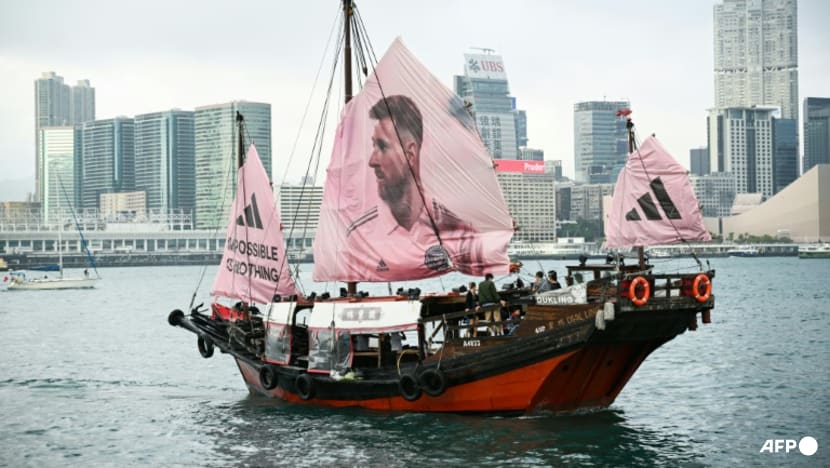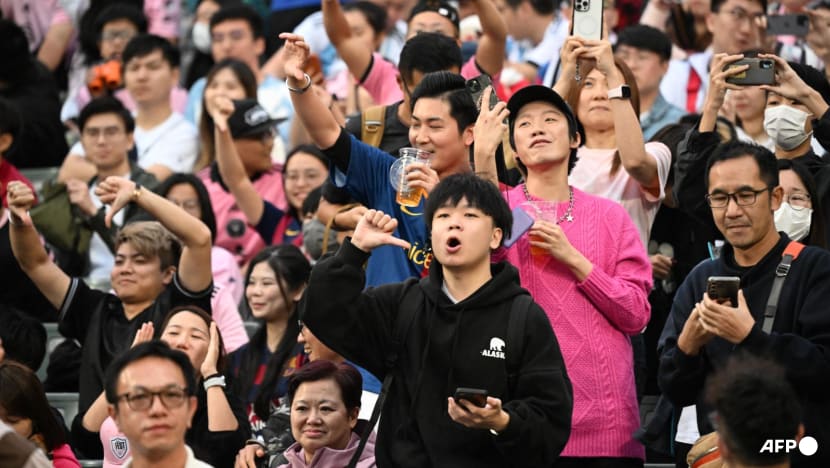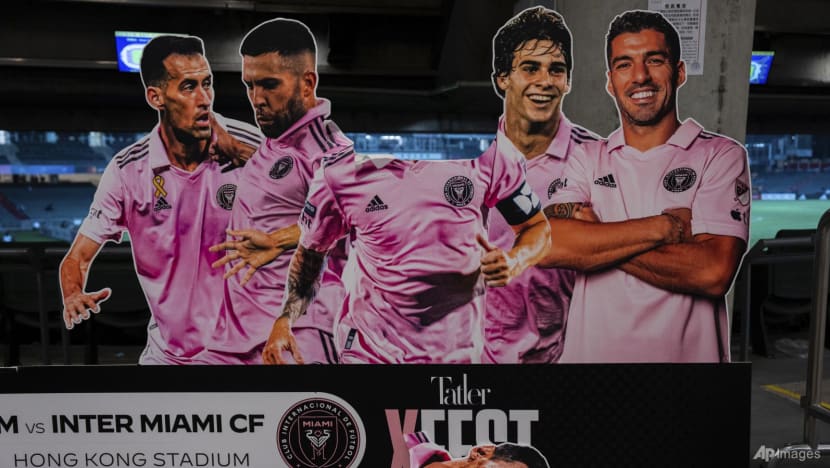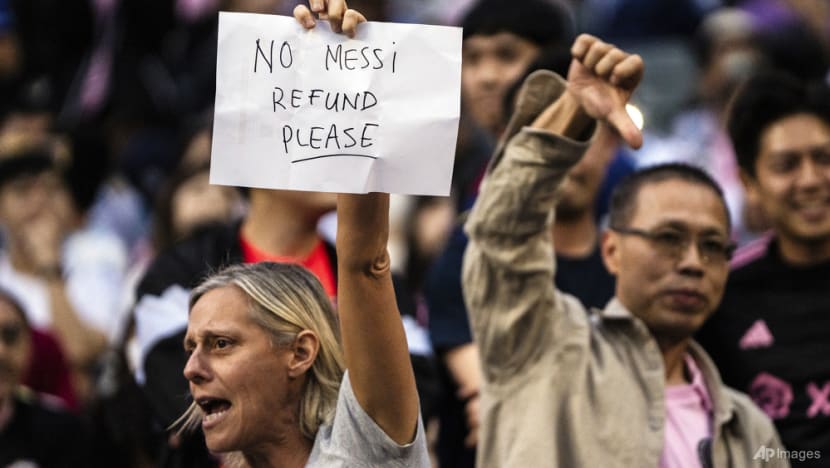Commentary: Lionel Messi gets a free kick out of Hong Kong too
The financial centre is long overdue for a big win and some cheer. Hosting costly mega live events, like Inter Miami’s football friendly, may not bring out a revival, says Shuli Ren for Bloomberg Opinion.


This audio is generated by an AI tool.
HONG KONG: How do you describe a wealthy city long overdue for a big win and some good cheer? Gullible?
Argentinian football player Lionel Messi got a superstar’s welcome in Hong Kong at the weekend, but stayed on the sidelines throughout the friendly match between Inter Miami and a local team, disappointing fans who had paid as much as HK$4,880 (US$624) a ticket. The audience booed and some demanded a refund, while the government said it might deduct its sponsorship of the event. The organisers had been promised HK$15 million in matching funds and HK$1 million in venue grants.
As fans, many of whom had travelled from afar, spilled out of the stadium angry and disappointed, questions started swirling. Was there a clause in the agreement between Inter Miami and the promoters that required the football star to play? And more importantly, can attendees – and the government – get a refund since the event was hyped around Messi?
Attending major sports events, it turns out, can be as tricky as holding China Evergrande Group’s dollar bonds. One has to read the fine print.



FANS DESERVED MORE FROM INTER MIAMI
It seems the recovery rate from the football team co-owned by David Beckham is as low as what creditors can expect from Evergrande.
Inter Miami has an escape clause. It had agreed Messi had to play for at least 45 minutes unless he was injured, according to local media reports. And no, fans won’t get a refund if the player skipped the game, the organisers had said in December.
One could argue that Inter Miami followed the wording of its agreement but not the spirit.
Messi is on a preseason tour from Saudi Arabia to Tokyo, with a stopover in Hong Kong. Despite an injury, he still appeared in the final 14 minutes of the team’s match with Al Nassr in Riyadh, dribbling the ball and making quick passes to teammates.
While the light jogging wasn’t much, it pleased fans in Saudi Arabia. Those at the Hong Kong arena deserved just that.
RUBBING SALT INTO HONG KONG’S WOUNDS
Perhaps Hong Kong is a mere afterthought compared to Saudi Arabia. The oil-rich nation boasts over US$400 billion in foreign reserves and a population of more than 30 million, while the Hong Kong government has less than $100 billion in its coffers for a city of 7 million.
But I am curious: If the match had been held in Beijing, would Messi still have sat on the bench?
Messi’s no-play is rubbing salt into the wounds of a wealthy financial centre that has been taken for granted again and again.
A Hong Kong court’s order to liquidate Evergrande last week was cheered by some as a show of judiciary independence from mainland China. But everyone with skin in the game knew they were holding worthless notes, that they would likely have to wait for years just to get back a few cents on the dollar.
Meanwhile, the city got a second national security law, under the name of Article 23 of the Basic Law, that has baffled the business community as to what exactly is a state secret.
A LESSON FOR ECONOMIC REVIVAL?
Hong Kong’s eagerness to reclaim its shine is palpable, but that also makes it easy to be taken advantage of.
Going forward, the government needs to have a good rethink of those mega live events. They are expensive to host, but may not bring out a retail sales revival.
Instead, the city can advertise its vibrant dining scene – no tourist leaves the city with an unhappy stomach – and cultural events, such as Victoria Park’s Chinese New Year fair. Turn that heartbreaking letdown into a lesson well learned.














